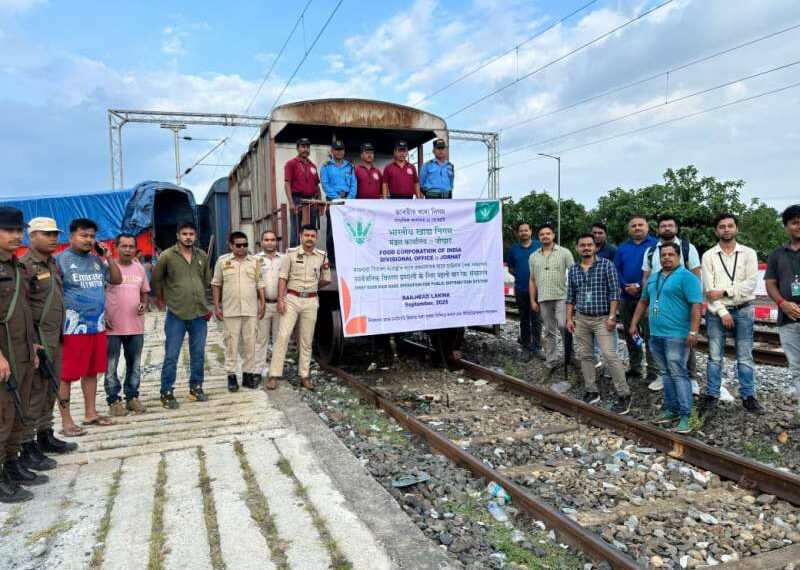Guwahati: A single train carrying a load of grain may not seem like much, but at the newly operational Lakwa railhead, it represents a monumental shift for thousands of families in Assam’s Sibsagar and Charaideo districts.
For the first time, these districts have a direct and reliable lifeline for their food supply, bringing the promise of efficiency and stability right to their doorstep.
For years, the Public Distribution System (PDS) in these areas relied on a cumbersome process of bringing subsidized food grains from distant railheads in other districts.
However, the Food Corporation of India (FCI), through its Divisional Office, Jorhat, has successfully operationalized the Lakwa railhead (LXA) for food grain induction.
For FCI, this isn’t just a technical achievement; it’s a commitment to the people. By opening a railhead in a region previously without one, the FCI has cut through logistical red tape to create a more direct and transparent supply chain.
The move is expected to streamline the PDS supply chain in these districts, ensuring that essential food grains reach beneficiaries faster and more reliably.
Notably, until the Lakwa railhead was made operational by the FCI, Sibsagar district had no railhead for the sustained induction of food grains.
The launch of operations at Lakwa faced significant challenges due to the area’s sensitive nature and operational constraints. However, the successful handling of the first delivery shows the FCI’s determination to provide uninterrupted food security even in the toughest environments. This milestone is not just an operational victory, but a powerful reaffirmation of the FCI’s commitment to serving beneficiaries under any circumstances.
With the Lakwa railhead now functional, Sibsagar district has achieved a new level of self-sufficiency. The reliance on other districts is a thing of the past, paving the way for optimized storage, faster movement, and a more financially prudent supply mechanism.
The start of the Lakwa railhead for PDS food grain is thus not just a logistical accomplishment but a strategic strengthening of the food security architecture in Assam, ensuring that PDS operations in the region are more robust, resilient, and beneficiary-oriented.
It remains to be seen whether the FCI can sustain this public interest intervention at the sensitive Lakwa location, which has long been known for its sociopolitical pressures and turmoil. But, for now, the community can look forward to a more secure future, with the harvest now truly coming home.















